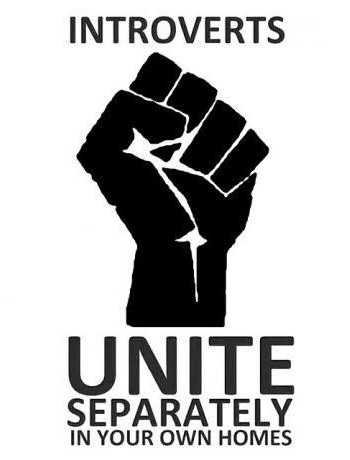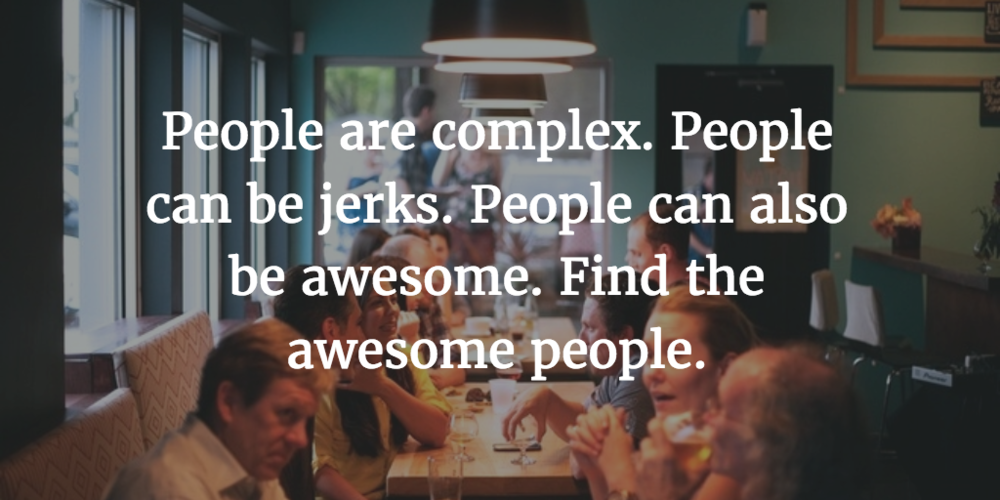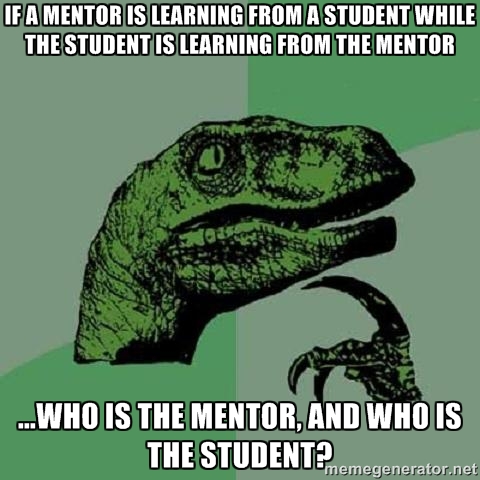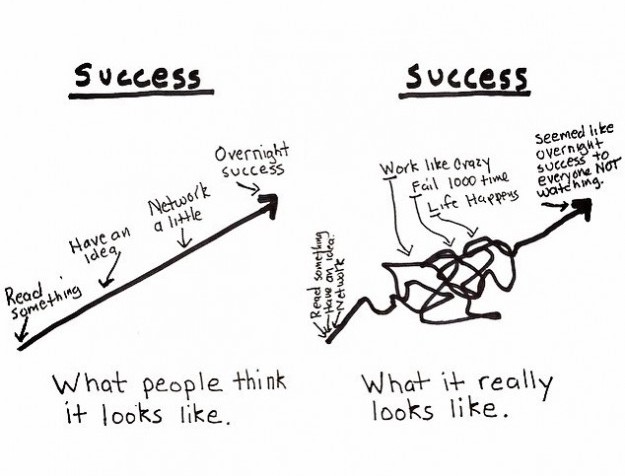The Learned Entrepreneur
Learn three things that helped me learn to be an entrepreneur: Purposeful self-growth, mentorship, and pivoting.

What does an entrepreneur look like? What makes someone an entrepreneur? What are the traits that you need to have to be successful as an entrepreneur? Are people born entrepreneurs, or can they be made?

It is easy to look at the stereotype of the quintessential entrepreneur often blared throughout various media channels and feel impostor syndrome creep in.
If you are not white, male, in your mid-40s–50s, extroverted and exceptionally charismatic…you don’t fit the bill. There is nothing wrong with being in that particular demographic, but it comes with perceptions that the rest of us have to battle (even if it is in our own minds). So how do you battle those perceptions? Where does the entrepreneurial drive come from? What makes you push past your inner voice, societal expectations and DO SOMETHING? Can you learn it?
In short: yep.
These are the three things in my experience that helped me learn to be an entrepreneur:
- Purposeful self-growth
- Mentorship, mentorship, mentorship
- Pivoting
1. Purposeful self-growth
When I was growing up, entrepreneurship wasn’t even a blip on my radar. It never came up in school, it didn’t run in my family, it simply wasn’t something I was ever exposed to. It was something that I became more aware of in my early twenties because Dana (my husband and business partner), who I started dating when we were 18, came from a family of entrepreneurs and it was a big part of his narrative.
Dana was the one who really made me realize that it was something that I could do, that it was something that I could be good at. That said, it took me years after we became business partners to internalize that I was, in fact, an entrepreneur and not just pretending to be one.
My battle was on two fronts:
I Don't Match the Entrepreneur Stereotype

I think part of the reason it took me so long to actually believe that I am in fact an entrepreneur is that I am, in almost every way you could think, the opposite of the stereotype of what an ‘entrepreneur’ looks like. I am female-identifying, I am an introvert, I am risk-averse, I love structure and process, I am generally a rule-follower, I dislike conflict, and I struggle to adapt to rapid change. Entrepreneurs are ‘supposed to be’ innovative risk-takers, ready to break the mould, push boundaries, lean in, and lead the masses.
Or something…
It was hard for me to look at myself and think, there’s an entrepreneur! It took me a long time to realize that I didn’t have to be someone I wasn’t. I could still be a successful entrepreneur, despite not fitting that mould. I still have to regularly push outside of my comfort areas to be in my role and I know the areas that I struggle with, but I can also recognize the benefits that a personality like mine brings to our business. Awareness is half the battle.
Other People's Assumptions
On the flip side, overcoming other people’s assumptions about my role and how I fit has been equally challenging. As a woman in a male-dominated industry, I have had to combat many challenging and frustrating perceptions. For the record:
- I am not my husband’s assistant.
- I am not ‘helping out with the business’.
- I am an equal partner and my partners and I have built this business together.
- No, I am not a programmer.
- Yes, I can speak about technical requirements and have a clear understanding of our technology stack.
- No, I would not like to talk about whether or not I am, or will ever have, children.
- Yes, I would love to talk about my cats.
- /end rant/
I could go on, but you get the idea.
So my self-perception and natural inclinations, combined with societal perceptions and expectations make for a tricky situation. I know that I am not alone in this and have heard similar experiences from many other entrepreneurs. The truth is, I think we are all fighting against something.

The most important and impactful thing I have done in my career, and the axe I wield in the battle against myself and other’s assumptions, is surrounding myself with a ton of really smart, compassionate, successful people of all backgrounds. They help me remember that it doesn’t matter who you are, what you look like, and there is no right way to be. What matters is what you do with what you have, how you treat others, and that you keep growing yourself.
2. Mentorship, mentorship, mentorship
One of the ways I found the awesome people mentioned above was by joining as many mentorship groups as I could. I have been a part of:
- Threshold Impact Venture Mentoring Service
The University of Alberta Threshold Impact Venture Mentoring Service (VMS) supports student and alumni entrepreneurs who aspire to set up high-impact ventures in the region—both for-profit and non-profit. It is modelled after the highly successful Massachusetts Institute of Technology (MIT) program. - Entrepreneurs’ Organization Accelerator
The Entrepreneur’s Organization (EO) Accelerator program is based on a peer-mentorship model with tools and education from the founder of EO, Verne Harish. - PeerSpark (when I was involved it was the Alberta Women Entrepreneurs Excelerator)
PeerSpark is a program that unites successful female entrepreneurs in their efforts to build confidence, improve their business acumen, and accelerate business success.

Each of these introduced me to people I would never have met, ideas I would have never have thought of, and pushed me to grow and learn in a million different ways. I could (and just might) write a post about my experience in each program, but the point here is that I know, without a doubt, that I would not be anywhere near where I am today without the peer support, learning, and mentorship that I have received, in each of these three programs. I am still involved in TIVMS as both a mentee and mentor and continue to get tremendous value. I have also made some life-long friends along the way.
Michael Kitson said,
Surround yourself with people who are better than you and you will become better yourself.
I have become better because of the people in these groups. Who are you surrounding yourself with?
3. Pivot
Pivoting is a term often used in startups. It is essentially frequently making and testing predictions about what will work in your business model. If an element works, then future iterations should retain that practice, but if it does not work, you should “pivot” by changing one or more elements.
I really like this term because it implies forward movement, in iterations, without the shame associated with failure. I have spent a lot of my life worrying about failing. Fear of failure is part of who I am, but not a part I really like. I have had to work hard to not let it be something that paralyzes me. Next to the sticky note on my monitor that says,
Don’t compare your insides to someone else’s outsides.
(as discussed in my post on impostor syndrome), is one by Robert H. Schuller that says,
I’d rather attempt to do something great and fail than to attempt to do nothing and succeed.
These ideas together are the most freeing things I have learned in the last few years. They are things that I hear over and over as I hear about the pivots and iterations of my friends and colleagues. Most days we are all flying by the seat of our pants. We all like to appear as though we are very self-assured and have complete control over every situation…but we really don’t. Don’t get me wrong, everyone has their expertise and talents, but we are not good at all things all the time. Anyone who says otherwise is a liar.

I think the true measure, and really the only requirement, of an entrepreneur is resilience. Try and Fail. Pivot. Try and Fail. Pivot. Try and Succeed. Try again. Deal with disaster. Pivot. Repeat. Shit happens. And that is ok, as long as you can keep moving forward.
Summary
Learning to be an entrepreneur is not easy, at least it wasn’t for me, but it’s fulfilling. It’s knowing yourself. It’s pushing, growing, learning, and having people in your life that build you up (that you can build up too). It’s having hard things to deal with and making mistakes but pivoting and trying again. I honestly believe that if I can learn to be an entrepreneur, in all my structured, introverted, and risk-averse glory, I think anyone can.
Share
Ashley Janssen

Productivity consultant, writer, speaker, serial entrepreneur, chaos calmer, introvert, cat-lady. Lover of books, fitness, old fashioned’s, basketball, and video games.
Follow me on
Twitter
or
LinkedIn.
Hire me for
1 on 1 productivity consulting
or
speaking.
Related articles

What It Really Means To Be Calm

September Crescendos


Comments ()